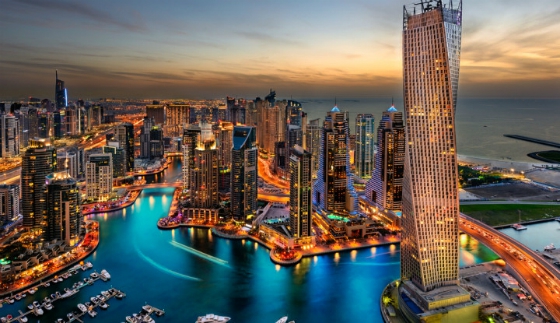IN A REPORT TITLED GLOBAL MEGATRENDS AND THEIR IMPACT ON THE MIDDLE EAST’S TRAVEL AND TOURISM INDUSTRY, PwC UNCOVERED FIVE TRENDS ACROSS THE WORLD THAT ARE SET TO TRANSFORM TOURISM IN THE MIDDLE EAST.
The first theme identified was demographic and social change.
Over the past decade, the region has led the emerging market population boom with 40 percent of the people under the age of 25. With this, the travel industry, historically designed to cater to middle aged tourists from advanced economies, must adapt to meet the needs of a wider variety of demographics which will in turn bring a new age of innovation.
PwC also highlighted the shift in global economic power as an important factor to consider.
Thanks to the Middle East's geographical location, it is in the centre of some of the fastest growing markets, including two of the most increasingly important outbound markets, India and China.
As these emerging economies continue to grow, the region has to ensure it takes proactive steps to attract such visitors.
As a hub for aviation, tourism and logistics, Dubai has successfully transformed into a key link between the East and West yet, the emirate, along with other destinations in the region, has to develop more budget-friendly accommodation options in order to attract more travellers from emerging markets, according to PwC.
Accelerating urbanisation was listed as the third global trend to impact the region, as the Middle East is one of the most urbanised destinations in the world.
PwC reported the USD4 trillion of projects in the region present the opportunity for country's to ensure infrastructure and urban spaces function optimally.
Meanwhile, climate change and resource scarcity was underscored as another important global trend, with water forecast to be a significant issue in the Middle East in the coming decade.
Currently, the GCC relies on 70 percent of its water, while consumption is set to grow by a third by 2020.
In light of this, and hotter summers, PwC outlined that stakeholders need to implement measures to ensure sustainability. Finally, PwC named technological breakthroughs as another factor to consider.
As tourism becomes increasingly disrupted by digitisation, the industry will require new skills and a shift in strategy.
The GCC has among the highest smartphone penetration in the world, reaching 78 percent in the UAE and 77 percent in Saudi Arabia.
The shift to digitisation is expected to impact all aspects of tourism, from influencing travel decisions, to feedback and improving the delivery of products and services. Commenting on the report, Martin Berlin, Middle East partner and global deals real estate leader, PwC, noted, "[…] New winds of change will require further transformation within the region's travel and tourism industry."
Travel Trade Weekly
12 May

























































